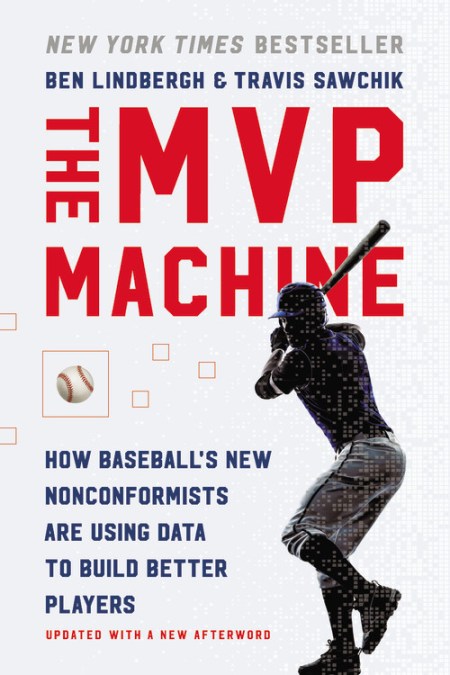This is my annual post listing books I read in the most recent year. It seems kind of remarkable now, but I have produced such a list since 2005. This is a link to the 2021 list if blog readers want to work backwards.
Also, I posted short reviews of most of these books at Goodreads.
Non-Fiction
Ben Yagoda, Will Rogers: A Biography
Christopher Coyne and Abigail Hall, Manufacturing Militarism
I read a couple of Grawemeyer-nominated books that were better than any of these, but didn't list them because it's a confidential review process. The Will Rogers bio really captured my attention. I learned of this book some years ago when going through the Rogers Museum in Claremore, Oklahoma. He was a remarkable entertainer and social critic.
The other two books I read because they are related to my research and teaching interests. Coyne and Hall are basically libertarian economists, but I generally agree with their argument about US manufacturing of militarism. Incidentally, Abigail Hall teaches at Bellarmine University here in Louisville, though I do not think we have ever met. The Bader et al book was written by the group who produce the Chapman University Survey on American Fears. The book discusses and contextualizes the findings over a period of years.
Literature and Genre Fiction
Eric Ambler, Judgment at Deltchev
Visit this blog's homepage.
For 280 character IR and foreign policy talk, follow me on twitter.
Or for basketball, baseball, movies or other stuff, follow this personal twitter account.
Ben Lindbergh and Travis Sawchik, The MVP Machine: How Baseball's New Nonconformists Are Using Data to Build Better Players
Arnold Hano, A Day in the Bleachers
Lois Browne, Girls of Summer: In Their Own League
Lois Browne, Girls of Summer: In Their Own League
Bill James and Rob Neyer, The Neyer/James Guide to Pitchers
The MVP Machine is the best baseball book I've read in some years and I highly recommend it to anyone who wants to understand how baseball analytics have changed in the last decade or so. The "Moneyball" days of finding players with undervalued skills are mostly gone. Now, teams (and private coaches/clinics) are developing athletes into better pitchers and hitters using advanced data based on the physical properties of pitching motion and grips or batter swing characteristics.
The Hano book is humorous at times, but felt quite dated. Browne's work focuses on an interesting story -- the All American Girls Professional Baseball League -- but I felt like it could have been both more informative about player performance and more entertaining. It's the kind of baseball book that focuses on game-by-game results and year-to-year transactions and standings rather than big picture analysis.
The James/Neyer encyclopedic book might have rated higher if I'd read it 15 or more years ago. As it stands, the information about pitcher arsenals they painstakingly acquired is now readily available for current players on Fangraphs or other baseball websites. And the entries are much more complete. That does not undermine their accomplishment altogether, but it created frustration at the lack of depth in many pitcher entries.
Literature and Genre Fiction
Erich Maria Remarque, All Quiet on the Western Front
Colson Whitehead, Harlem Shuffle
John Updike, Bech: A Book
Cormac McCarthy, The Crossing
Evelyn Waugh, Men At Arms
These works count as literature and all are worth worth reading. Remarque's book is rightfully a classic and I thought it was the best work of fiction I read all year. Yes, I should have read it long ago and my education likely suffered for not having done so. On the other hand, I managed to read it before viewing the newest film version.
I really liked Whitehead's recent venture into the crime genre and Updike's classic (?) semi-autobiographical (?) novel about an author.
These works by McCarthy and Waugh were fine, but I've read better books by both men.
Charles Cumming, Trinity Six
Eric Ambler, Judgment at Deltchev
Philip Kerr, A German Requiem
Jason Matthews, The Red Sparrow
Donald Westlake, The Sour Lemon Score (as Richard Stark)
Donald Westlake, Deadly Edge (as Richard Stark)
Lawrence Block, When the Sacred Ginmill Closes
John Le Carré, The Looking Glass War
Sue Grafton, L is for Lawless
Ross Macdonald, The Goodbye Look
Brendan Boyd, Blue Ruin: A Novel of the 1919 World Series
Donald Westlake, Somebody Owes Me Money
Joel Goldman, Motion to Kill
Each of the works of genre fiction above this note was good and I'm glad I read it. You probably notice that this was a particularly good year for reading spy fiction and Donald Westlake crime works.
Many, actually most, of the authors are familiar from past iterations of this summary report. You'll find books here from the Bernie Gunther, Matt Scudder, Kinsey Milhone, and Lew Archer detective series, which I'm generally reading in order.
Disclosure: Joel Goldman was a Kansas debater in the 1970s and I've met him a number of times at reunions or other events.
Gregory Benford, Timescape
John MacDonald, The Empty Trap
Agatha Christie, And Then There Were None
Lawrence Block, Girl with the Deep Blue Eyes
PD James, Original Sin
Helen MacInnes, The Salzburg Connection
Stephen King, End of Watch
Ian Fleming, Thunderball
George V. Higgins, The Rat on Fire
Cornell Woolrich, The Black Curtain
Michael Crichton, Scratch One (as John Lange)
Dan Brown, Origin
Gregory McDonald, Fletch Reflected
Many of these books were OK, but most were so-so and had some serious flaws. I'm not going to be detailing all of those here, but you can probably find out on my Goodreads account.
Visit this blog's homepage.
For 280 character IR and foreign policy talk, follow me on twitter.
Or for basketball, baseball, movies or other stuff, follow this personal twitter account.


No comments:
Post a Comment